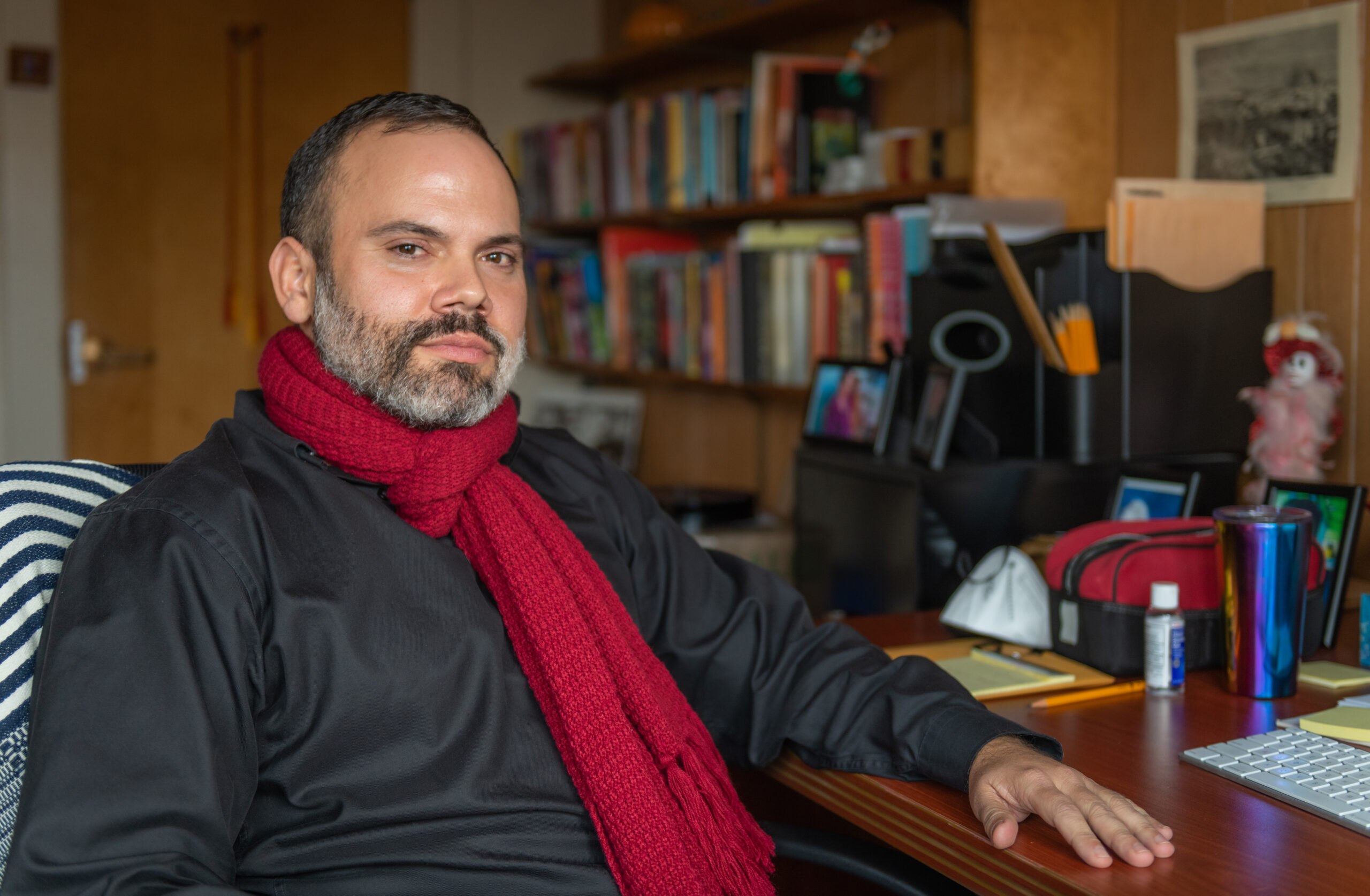‘Approach the world with an open mind’

Spanish Professor Juan Pablo Rivera, from the Department of Language, Literature, and Culture, sees his writing as a tool to honor community. In his poems and essays, he ruminates on his experience of being “a queer person of color who migrated from Puerto Rico to the U.S. mainland, and who never quite feels like he belongs anywhere.” Two books that featured these topics won awards in 2022.
The International Association of Gender and Sexuality Studies honored Rivera with a literary criticism award for his book of essays, “La hermosa carne: el cuerpo en la poesía puertorriqueña actual” (“Gorgeous Flesh: The Body in Today’s Puerto Rican Poetry”), and with its poetry award for his book of original poems, “En invierno la batalla” (“A Battle in Winter”).These books were published in 2021 in Spain by Iberoamericana/Vervuert and Valparaíso Ediciones, respectively.
Rivera’s book argues that “poetry has value today in a world where politicians and media outlets obscure the truth.”
“Reading closely, and with care,” Rivera says, “is a political act, because it stops you to think critically about meaning and intention.”
“La hermosa carne,” which also earned honorable mentions from the International Latino Book Awards and Puerto Rico’s chapter of PEN Club International, explores populations and authors who are marginalized within the dominant literary canon. Rivera describes his poetry as an expansion of these themes of migration, exclusion, and survival.
Rivera’s favorite poem from his first collection, “La fuga de cerebros/The Brain Drain,” is “To the Naked Bodybuilder at the Beach.” He cleverly writes about meeting a friendly and gregarious bodybuilder and explores how insufficient the interaction made him feel.
“I realize that bodybuilding is a type of dysmorphia, but I still admire people who seem completely comfortable with their bodies and the spaces they fill,” he says.
Rivera’s personal story begins in Hatillo, known as the dairy capital of Puerto Rico, where he attended Catholic school and was taught almost exclusively in Spanish. He watched MTV to learn English, studying the language through music videos and interviews.
Literature was Rivera’s “pathway to leave the island,” thanks in large part to his middle school English teacher, Kalpana Arun, who introduced him to Shakespeare, his first literary love. Both Arun and Rivera’s family, which included two teachers and a librarian, noticed his literary gift and encouraged Rivera to leave Puerto Rico to study in the mainland U.S. These women are examples of strong female influences in his life, as were his mentor at Clark, Professor Maria Costa Cruz, and his closest friend from graduate school, Maria Ospina.
Rivera left Puerto Rico for Yale University where he studied Latin American literature and began to seriously pursue gender and sexuality studies. His four years at Yale were deeply transformative because he learned the importance of community and its relation to a strong sense of self. He recalls feeling like a minority for the first time and being dubbed a person of color, a term that in Puerto Rico is exclusively used to refer to black Puerto Ricans.. Although the American “POC” label initially felt forced, Rivera eventually felt he was “gaining an identity” and became comfortable to self-identify as such.
Rivera approaches his poetry the same way he developed his identity — with the flexibility to change perspective. He uses poetry as a “mode of thinking,” writing in Spanish to create a sense of space and self for his Spanish-speaking readers and those who want to learn Spanish.
“Thinking in a different language adds a different perspective about the place you inhabit,” he says. “When you learn to name landscapes in another language, you see the world differently and reflect; you approach the world with an open mind.”
This academic year, Professor Rivera received Clark’s Hodgkins Faculty Award for exceptional teaching, research, and service to the University.


